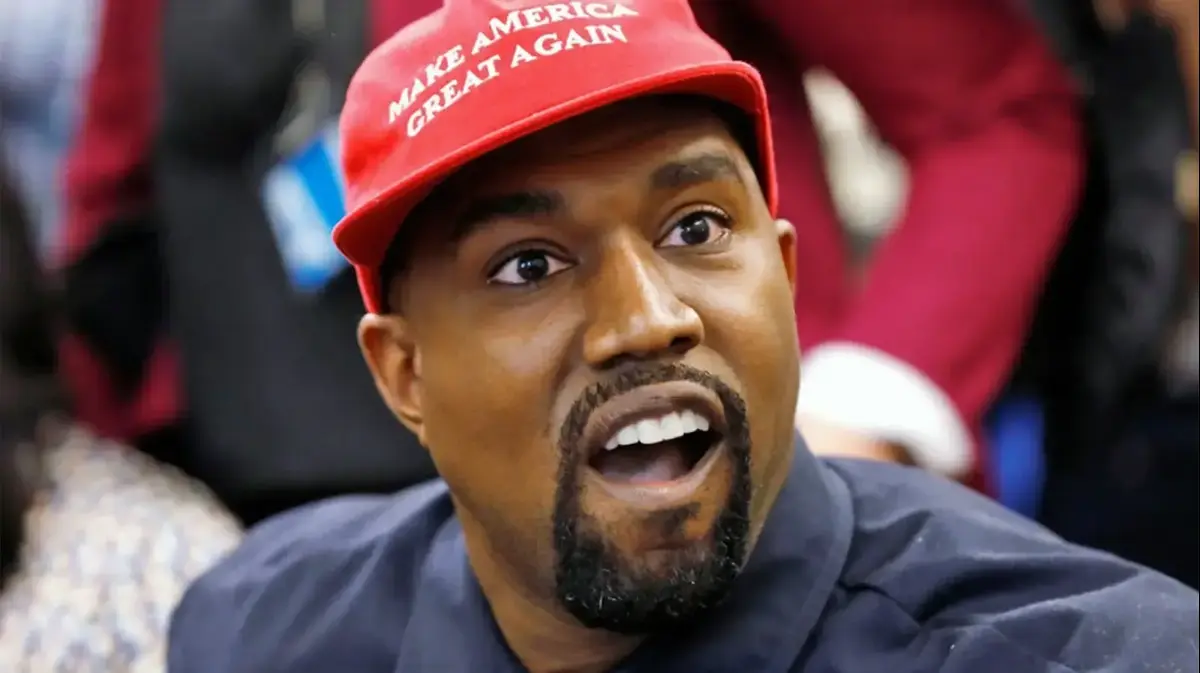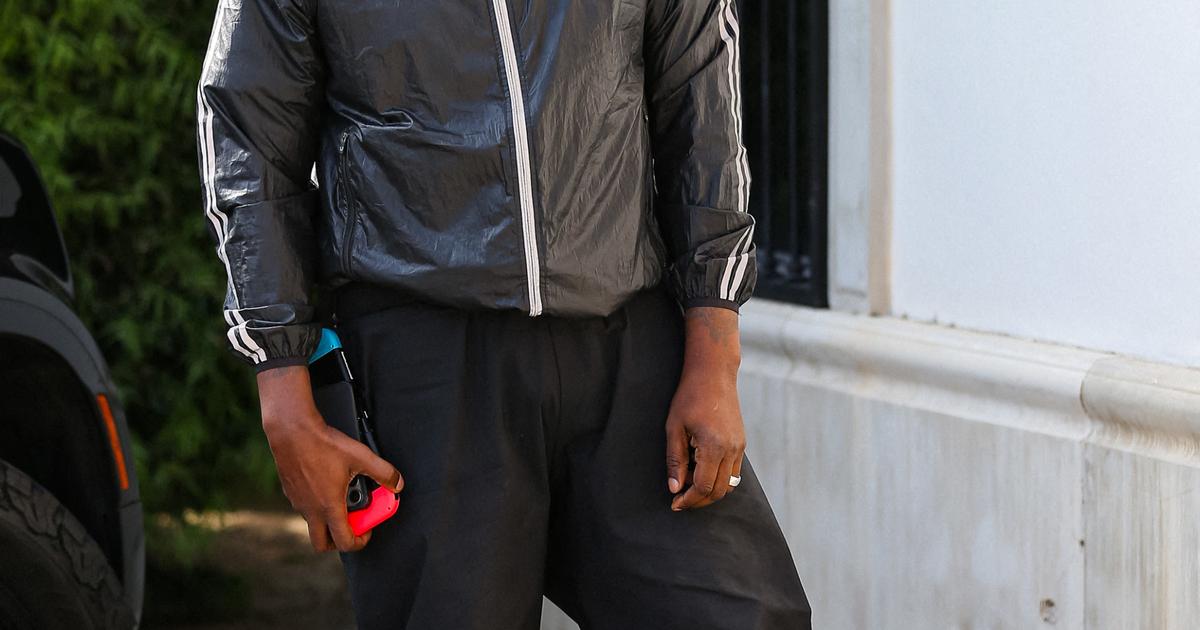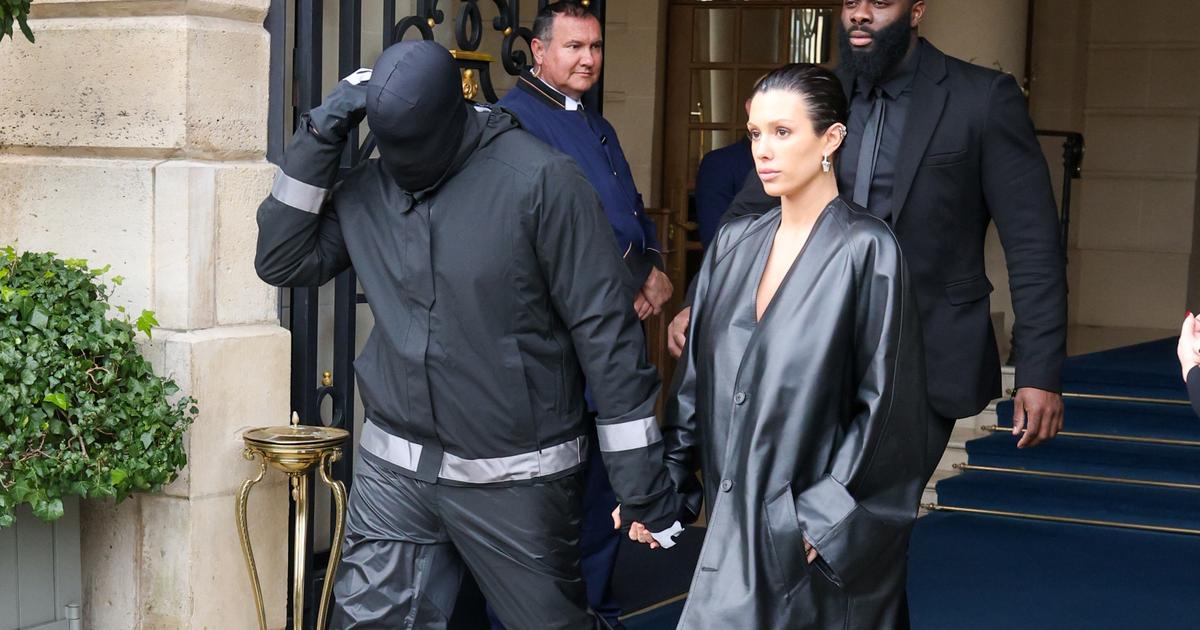Eight years ago, Xabi Alonso, a Real Madrid player at the time, starred in one of Adidas' most defining involuntary advertisements.
As he left for the training ground, cameras caught him arguing with Cristiano Ronaldo over the primacy of the three-stripe brand over Nike, the Portuguese star's sponsor.
“Adidas is history”, summed up the Spanish midfielder, “Nike has been in football for three days”.
It was to flee from that concept of a classic brand, and thus make a leap into urban fashion, which is why the German company launched Yeezy in 2015, its collaboration with Kanye West.
Now, after cutting the famed rapper over his anti-Semitic comments, Yeezy has gone from being his growth engine to his biggest headache.
This, added to less dynamism in China, makes 2023 a year of transition for Adidas,
accumulated stock
of Yeezy.
The German group closed 2022 with an advance in sales (22,511 million, 6% more), but its annual profit, of 612 million euros, fell 71%.
The numbers, presented on March 8, warned of the tortuous path ahead: in the last quarter of 2022 the red numbers were 512 million.
The company, which reduced its margins during the year, did not meet any of the strategic objectives it had promised.
In fact, it has been since August 2021, when it sold Reebok, without complying with them.
Seeking to correct course, Adidas appointed a new CEO last November.
The chosen one was Björn Gulden, former CEO of Puma, his great rival.
More information
The dilemma of Adidas after the fall of Kanye West: what to do with 1,200 million euros in unsaleable products?
“You look at the numbers and it is obvious that we are not performing as we should,” Gulden declared in an interview on the day of the results presentation.
The reasons given by Adidas for this setback are varied: from geopolitical tensions —with its departure from Russia, a market in which it had deep roots— to its loss of strength in the Chinese market.
In addition, its policy of price increases due to cost inflation has led to an overaccumulation of inventories in markets such as Europe, which will have to be sold at deep discounts.
And in the middle of it all, the mess with Kanye West, now known as Ye.
Yeezy was Adidas' most profitable line: it could command high prices—between 200 and 400 euros per pair of sneakers—and all products were sold without intermediaries or the need for discounts, with a 40% return.
“They had built a great brand in five years,” says José Luis Nueno, a professor at IESE Business School and an expert in distribution.
Last June, before his breakup with Ye, they calculated that they would sell 1.7 billion euros worth of Yeezy products throughout the year.
"At the rate of sales and growth it had, it would have meant sales of 10,000 million for Adidas in 2026," says Nueno.
Of the 700 million euros in losses that the German group expects by 2023, 500 correspond to the loss of this line.
The fall from grace of the American rapper was confirmed when, last October, he made a series of racist and anti-Semitic statements.
Right away, Adidas decided to cut him off.
However, the initial social rejection of his comments does not seem to be noticeable in the value of the products that he conceived with the brand.
The cancellation of the line has only restricted the offer and skyrocketed its prices in the second-hand markets: for a Yeezy Boost 350, one of its most precious models, up to 575 euros are being paid on StockX, one of the pages specialized in the world of slippers.
The Yeezy are trading on the rise, and for Nueno, this is not a surprise: "It is a line aimed at young people with little memory."
Now, Adidas finds itself in a big dilemma: it has 1.2 billion euros worth of Yeezy products collecting dust, and all the options open to them present drawbacks: on the one hand, Nueno points out, they could continue with the collection but remove the brand insignia from Yeezy.
This, however, could equally trigger social rebuke for holding the line despite Ye's anti-Semitic and racist comments.
They could also, says the expert, sell what is left at cost price and give up their juicy margins.
The new CEO has dropped a similar idea: sell what's left and donate the profits.
Whatever they do, the market seems to take it for granted that the solution is not going to be ideal: if Adidas thinks they could see losses of up to 700 million, investors are aiming for around 300 million.
The day they announced the cancellation, the manufacturer of sports products fell more than 4% on the stock market.
Since then, its shares have depreciated more than 35%.
Since the pandemic, the decline is more than 50% on the stock market, and the total value of the group (25,000 million) is only one and a half times the expected turnover for this year.
Nike's value-to-sales ratio is 3.4 times.
boycott
And, if a headache weren't enough, Adidas is presented with another no smaller size: China.
The Asian giant was the most profitable market for Adidas, and represented 20% of its sales.
The zero covid policy led to a 50% reduction in sales in the last quarter.
In addition, as Bankinter analysts point out, the boycotts of Western brands in 2021 have made it lose market share in favor of local brands.
“It is difficult to distinguish what has happened in China”, points out Banco Sabadell investment analyst Arantxa Piñeiro, “but that situation has to change, because it is one of the most relevant markets for the sector”.
The solution that Adidas points to is to go down into the mud in the local business: "The needs of China may be different from those of Germany or the US," pointed out its CEO.
For Piñeiro, the line set forth by the company is clear: "It has to be a local business, made by locals and for locals."
Gulden therefore has a lot of work to do.
The manager already managed to turn Puma around at the time and the market values him.
Analysts have received positively the chat he had with them last week.
From Cowen, the financial division of the American multinational TD Securities, they even think that Adidas is being too pessimistic with its objectives for this year taking into account that China has left restrictions behind.
“2023 will be a year of transition, and then we will see”, concludes Piñeiro.
Follow all the information on
Economy
and
Business
on
and
, or in our
weekly newsletter



/cloudfront-eu-central-1.images.arcpublishing.com/prisa/JA4RXYZUW5B6ZAE3MS46WDSQP4.jpg)





